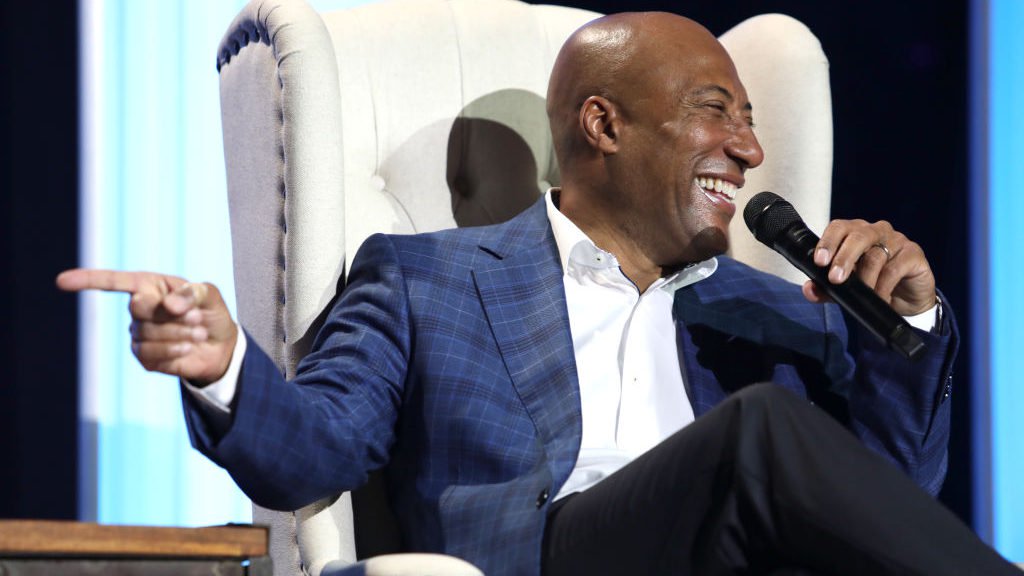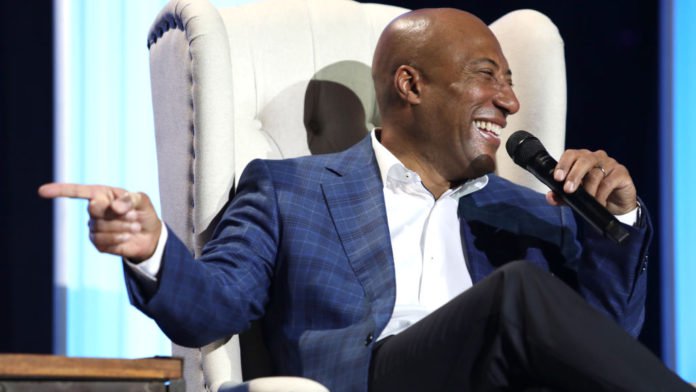[ad_1]
The National Association for the Advancement of Colored People (NAACP) has released an exclusive statement in response to Comcast cable network’s ongoing legal battle with Byron Allen Entertainment Studios, in which Comcast requests the Supreme Court to weaken protections laid out in the Civil Rights Act of 1866.
“Because of a dispute with a Black businessman, the company has urged the Supreme Court to roll back the crucial protections of one of the nation’s oldest civil rights laws, Section 1981 of the Civil Rights Act of 1866,” the statement says.
As it stands, Comcast is currently in the midst of a $20 billion racial discrimination lawsuit with Byron Allen Entertainment Studios. Back in 2015, media mogul Byron Allen sued the cable and media giant after it refused to carry his digital television channels, including Pets.TV and Cars.TV.
Allen claims that the cable operator is in violation of the Civil Rights Act of 1866, which explicitly prohibits racial discrimination in contracting, by refusing to carry networks owned by his company and/or other Black-owned media companies.
The Chairman/Founder and CEO of Entertainment Studios’ lawsuit also pointed to Section 1981 of the Act, which says that all people should have “the same right … to make and enforce contracts … as is enjoyed by white citizens.”
Earlier this year, an Amicus Brief filed by the Department of Justice requested Allen prove that race was a motivating factor in his claim that Comcast was in violation of the Civil Right Act.
Allen responded to the DOJ with a statement of his own:
“This is historic,” Allen said of the brief filed in January. “Donald Trump’s DOJ and Comcast are working together to destroy a civil rights statute in the U.S. Supreme Court.
“You have one of the biggest media companies in the world, which has been beating up Donald Trump for racism, and now they are saying we will work together to maintain institutionalized racism in America, in this Amicus Brief they delivered,” Allen continued.
READ MORE: Byron Allen calls out Comcast and Justice Dept. for “institutionalized racism” after new brief filed
Fast forward, and the NAACP has come forward in support of Allen for his upcoming battle. On Thursday (September 26), the organization released an exclusive statement, detailing Allen’s ongoing suit, and requesting protection against discrimination:
“For more than a century, Section 1981 has been used as an important tool to combat race discrimination, particularly for employment discrimination claimants,” the statement said.
It continued, “Yet now, in a situation that has become all too familiar during this era, an upcoming Supreme Court decision has the potential to reject these lessons of history by rolling back the clock on basic civil rights.”
The $20 billion suit is set to forward to the Supreme Court November 13.
Read the full statement from the NAACP below:
“In several weeks, the Supreme Court will hear one of the most important civil rights cases to come before it this term. Comcast – the second largest broadcasting and cable television company in the world – is poised to take an unprecedented step. Because of a dispute with a Black businessman, the company has urged the Supreme Court to roll back the crucial protections of one of the nation’s oldest civil rights laws, Section 1981 of the Civil Rights Act of 1866.
For more than a century, Section 1981 has been used as an important tool to combat race discrimination, particularly for employment discrimination claimants. Throughout the NAACP’s history, standard-bearers of justice like Thurgood Marshall have harnessed the power of Section 1981 to fight various forms of discrimination. Yet now, in a situation that has become all too familiar during this era, an upcoming Supreme Court decision has the potential to reject these lessons of history by rolling back the clock on basic civil rights.
Although the NAACP takes no position on the underlying dispute, we have decided to take the lead on this issue. We urge Comcast to cease its attack on Section 1981 of the Civil Rights Act of 1866; a bedrock civil rights statute that has been in place for more than 150 years.”
[ad_2]
Source link


